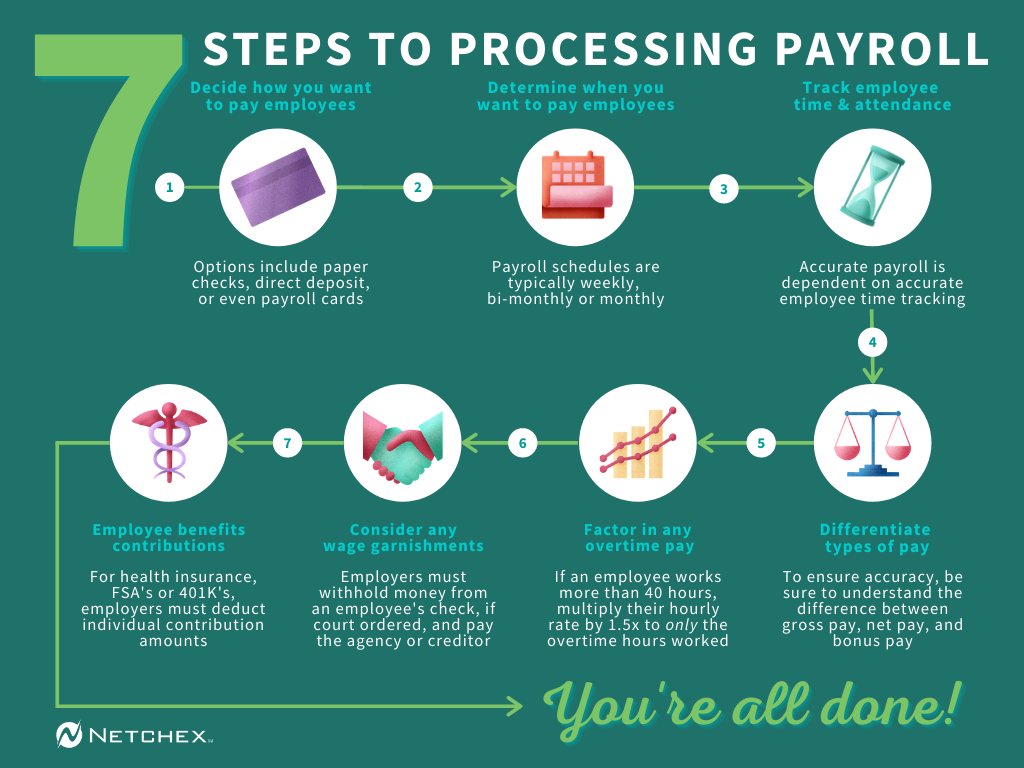Do I Need to Process Payroll? Understanding the Essentials
In the realm of business operations, one critical aspect that demands attention is payroll processing. Whether you’re a small startup or a well-established corporation, the question of whether to handle payroll internally or outsource it is crucial. This article delves into the intricacies of payroll processing, helping you make an informed decision that aligns with your business needs.
The Importance of Payroll Processing
Processing payroll goes beyond merely issuing paychecks to employees. It involves a systematic approach to calculating wages, withholding taxes, and ensuring compliance with various regulations. Let’s explore why payroll processing is a vital component of business operations.

1. Regulatory Compliance
One of the primary reasons to invest time and resources in payroll processing is to ensure compliance with local, state, and federal regulations. Tax laws, wage and hour regulations, and other statutory requirements evolve, and staying abreast of these changes is imperative. Failure to comply can lead to penalties and legal repercussions.
2. Employee Satisfaction and Retention
Accurate and timely payroll processing contributes significantly to employee satisfaction. Employees depend on their paychecks being correct and delivered on schedule. A well-organized payroll system helps build trust and fosters a positive work environment, which, in turn, contributes to employee retention.
3. Financial Management and Reporting
Effective financial management relies on accurate payroll data. Payroll processing involves tracking expenses related to employee compensation, benefits, and taxes. This data is essential for budgeting, forecasting, and generating financial reports that aid in strategic decision-making.
Options for Payroll Processing
Now that we understand the importance of payroll processing, the next step is deciding how to handle it. There are several options available, each with its own set of pros and cons.
1. In-House Payroll Processing
Managing payroll internally provides businesses with control and customization. However, it requires a dedicated team well-versed in payroll regulations and the use of payroll software. This option is best suited for businesses with the resources and expertise to handle the complexities of payroll.
2. Outsourcing Payroll
Outsourcing payroll to a professional service can be a cost-effective solution. Outsourcing providers specialize in payroll processing, staying updated on regulatory changes and ensuring accuracy. This allows businesses to focus on their core operations while leaving payroll responsibilities to experts.
3. Automated Payroll Solutions
Advancements in technology have led to the development of automated payroll solutions. Cloud-based platforms offer streamlined payroll processes, reducing manual errors and increasing efficiency. Automated systems integrate with other business tools, providing a seamless experience.
Factors to Consider in Decision-Making
Choosing the right payroll processing method requires careful consideration of various factors. Here are key aspects to keep in mind:
1. Business Size and Complexity
Smaller businesses with a limited number of employees may find in-house payroll processing more manageable. Conversely, larger enterprises dealing with a complex workforce and multi-state operations may benefit from outsourcing or automated solutions. https://celestinos.com.au/tax-accountants-in-sydney/
2. Budget Constraints
Budget considerations play a significant role in the decision-making process. In-house payroll processing may involve higher initial setup costs and ongoing maintenance, while outsourcing and automated solutions often come with predictable monthly fees.
3. Expertise and Compliance
Consider the level of expertise within your organization. Handling payroll in-house requires knowledge of tax laws, compliance regulations, and payroll software. If your team lacks this expertise, outsourcing or using automated solutions may be more practical.
Conclusion
In conclusion, the decision to process payroll internally, outsource, or use automated solutions depends on various factors unique to each business. Understanding the importance of payroll processing and evaluating the available options can guide you towards a decision that aligns with your business objectives.
Ultimately, whether you choose to keep payroll processing in-house or leverage external expertise, the key is to prioritize accuracy, compliance, and employee satisfaction. A well-managed payroll system contributes not only to financial stability but also to the overall success and growth of your business.


